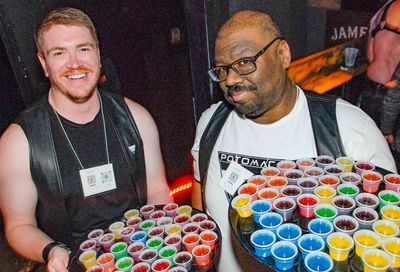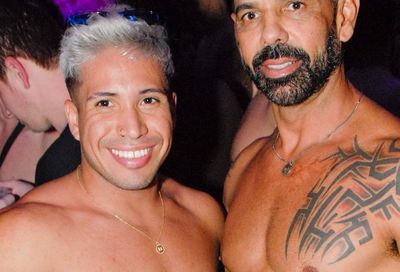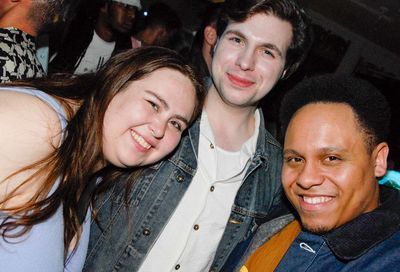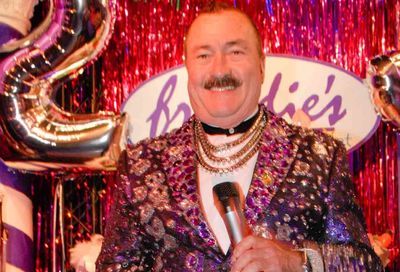Imperfect Union
As we win political victories, LGBT collective values become harder to pin down
My grandfather was a union man. I didn’t know this till I was shown a photo of him, long after he died, taking part in an upstate New York strike. Aside from that picture, his labor history is a mystery to me. I never met him, thanks to his three-packs-daily unfiltered Camels habit, washed down with a couple quarts of Pabst Blue Ribbon.
When I saw that photo, though, I remember feeling proud. I, too, am a union man. Not that I ever belonged to one, mind you. I’ve never worked anywhere with a union. And the one I and others tried to start at the Washington Blade a decade ago was a lost cause. As someone who has never been a stellar negotiator – it’s the same reason I suck at bridge, I simply can’t master the pretense – the idea of worker representation has always appealed to me. Sure, I’ve often been the worker left holding the bucket while others dither, but that doesn’t make me any more wary of labor than of management. Simply, in the power dynamic of one side, bosses, having authority over the other, workers, I think the playing field should be relatively level. The alternative looks like the industrialized extension of serfdom or sharecropping.
Where the LGBT community is concerned, I’m apparently not alone. In light of Wisconsin Gov. Scott Walker’s (R) assault on collective bargaining by state employees, dozens of LGBT groups have allied themselves with the workers, according to Pride at Work. These groups range from the National Black Justice Coalition and Human Rights Campaign, to the Tennessee Transgender Political Coalition and PFLAG. Some of the groups supporting the workers have obvious motivations. Walker is aiming at the teachers’ union, while the Gay, Lesbian, Straight Education Network has reason to defend them. Same too for LGBT Democratic organizations, with Democrats generally being long-allied with organized labor. But many are just part of the left-leaning progressive umbrella.
What’s tricky is that, as the LGBT community inches ever closer to full equality, more of us don’t want to stand under that umbrella. I would reckon, for example, that there are those who may have donated some amount to HRC without necessarily being strong supporters of collective bargaining. In my own union-organizing experience at the Blade, all the factions were gay. And in the end, the staff voted against unionizing. Some threatened to leave the business entirely if it did unionize.
Chris Barron of GOProud, for example, may represent a fringe of the LGBT community, but he is part of our community nonetheless. When he tweets, ”Dear union flunkies – unionizing is not a ‘fundamental American right,”’ poking a stick at Gov. Pat Quinn’s (D-Ill.) phrasing, he loses none of his gay identity.
There are certainly arguments to be made that LGBT people have suffered economic injustices due to their orientation/identity, arguments that would conclude that the LGBT community and organized labor should work together. There are legitimate arguments from gays on the right why we shouldn’t.
What’s left is a movement that is going to have to do some soul searching in the coming years. We still have ENDA and marriage and immigration to tackle. We have most definitely not reached the promised land. But will the Servicemembers Legal Defense Network or Servicemembers United have much to do a couple years from now? We are, in many ways, defined by our struggles and as we win them we obviously lose that definition. Some would say we should just continue along the progressives’ path – but not all.
It is coming time to better define what’s left to conquer and, perhaps more importantly, what will be left once we’ve won. In the end, maybe we will have come full circle if all that remains is the sex.
Support Metro Weekly’s Journalism
These are challenging times for news organizations. And yet it’s crucial we stay active and provide vital resources and information to both our local readers and the world. So won’t you please take a moment and consider supporting Metro Weekly with a membership? For as little as $5 a month, you can help ensure Metro Weekly magazine and MetroWeekly.com remain free, viable resources as we provide the best, most diverse, culturally-resonant LGBTQ coverage in both the D.C. region and around the world. Memberships come with exclusive perks and discounts, your own personal digital delivery of each week’s magazine (and an archive), access to our Member's Lounge when it launches this fall, and exclusive members-only items like Metro Weekly Membership Mugs and Tote Bags! Check out all our membership levels here and please join us today!


















